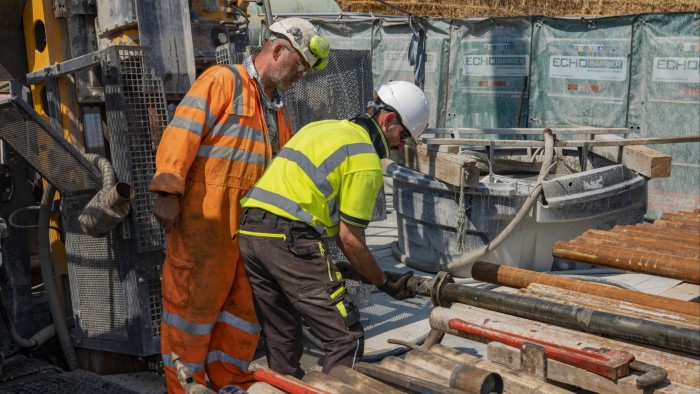Unlock the Editor’s Digest for free
Roula Khalaf, Editor of the FT, selects her favourite stories in this weekly newsletter.
The UK will have to consider subsidies for new mines and more stockpiling to avoid supply bottlenecks for critical materials, the head of the UK’s minerals supply watchdog has warned.
Gavin Mudd, director of the UK Critical Minerals Intelligence Centre (CMIC), said one option would be legislation similar to the US Inflation Reduction Act, which offers subsidies for the domestic production of some minerals. He also said the government could build up stockpiles of critical materials — an approach used by the US Department of Defense.
“That’s what has to be looked at, what works best for the UK context,” Mudd said.
There is growing concern about the vulnerability of the UK and other industrialised nations to shocks in the mineral supply chain as decarbonisation increases demand for a range of materials that were previously little-used.
“We’re living in a globalised world,” Mudd said. “That’s what we have to grapple with.”
Late last year the CMIC put together a list of the minerals most at risk from shortages and most important to UK industry. Top of this “critical minerals list” was niobium, a relatively obscure metal but a vital ingredient in many forms of steel. More than 90 per cent of the world’s niobium comes from one country — Brazil.
The CMIC report, commissioned by the Department for Business and Trade, was the first study of its kind since 2021.
Mudd said that the government would have to look at alternative ways to obtain materials that come from a narrow range of sources, possibly through expanding UK mineral production, such as the lithium mine under development in Cornwall.
Lithium was among 34 critical minerals on the CMIC’s list. There were other sites for lithium beyond Cornwall, Mudd said, as well as nickel deposits in Scotland.
Mudd added that, when cobalt supplies ran short in the 1990s, at the height of the civil war in the Democratic Republic of Congo, some sectors had found alternatives to the mineral. He suggested this could be another means of reducing vulnerability to supply chain risks.
“They found . . . alternatives that could do the same thing,” Mudd said.
Cobalt was second on the CMIC’s critical minerals list, while rare earth elements came third. Rare earths are 17 different minerals critical in production of the magnets at the heart of many devices, from electric vehicle motors to wind turbines.
Mudd said that the supply of some minerals, such as Fluorspar, was becoming more difficult. The UK has become entirely dependent on imports of Fluorspar, which is used to make fluorine and fluoride for a variety of nuclear energy and metalworking processes, since 2023, when the last British mine for the product closed in Derbyshire.
Mudd warned of the dangers to UK businesses if critical mineral supplies were interrupted. A halt in niobium supply, for example, would have “a significant effect on the automotive industry”.
He urged the government to press ahead with a plan to secure the UK’s access to the critical materials. “We’ve done the analysis. Government will need to do the policy strategy development.”
Read the full article here

